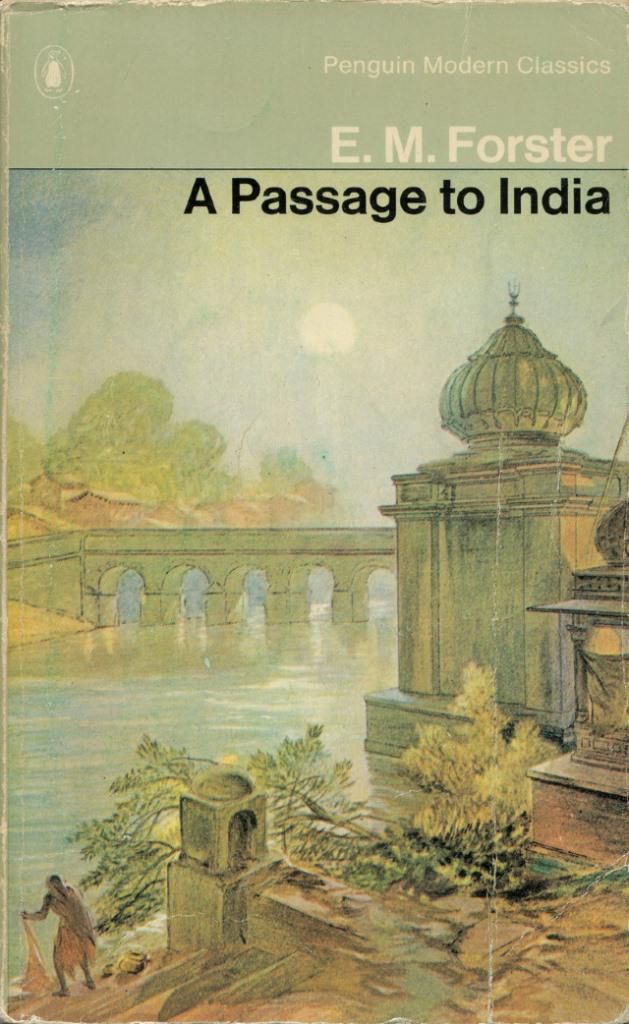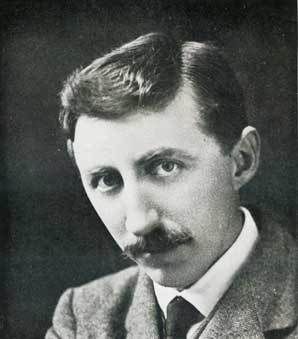A passage to India
Publié le 9 Mai 2016
Why did I decide to read EM Forster’s A passage to India? Probably no other reason than it’s about a European’s vision of India and I had enjoyed some other books by the same author, Howard’s End and A room with a view. Then there was a film to watch after having read the book, and the interesting task of comparing the two; nothing very extraordinary, as you can see. Besides, the book speaks about a time, early XXth century, which is long gone (the book was published in 1924, and parts of it written as early as the 1900s during Forster’s first stay there). Well, I didn’t mind that, but some of you may, so now you know. It’s indeed very much a novel about Anglo-India, by which is meant the imperial institutions at the time when Britain was still the ruler in India, and it also refers to the small groups of English people living there for these institutions, the Anglo-Indians, and their specific frame of mind.
Just as Forster had hated his time at the public school of Tonbridge (link), he hated the products that came out of the educational system which they represented, and apparently a certain quantity of these representatives were to be found in these Indian positions: judges, civil servants, police staff, professionals etc. The book targets their petty racism with a vengeance, and does a frightful mess of their prejudices and bigotry. So that one might say it’s more about Britishness than Indianness. The main character (Doctor Aziz) may be a Mohammedan Indian, he’s partly a pretext, and his status as a victim serves EM Forster well. You’ll find the story everywhere if you are interested by it (here for example) so I won’t go into its details, but I might just say that it tells the drama of some English people arriving in India and succumbing to the lure of “the real India”. Same as today in fact. The difference is that in 1910 Imperial Britain meant that these newcomers joined a country under British rule, the rulers having been there since the XVIIth century. Enough time to develop certain attitudes, among which an overweening sense of their inbred civilizing superiority and of the “natives”’ hopeless lowliness.
During the first part of the novel, the observation of this well staged confrontation occupies the reader completely: to what extent will the new arrivers, a certain Miss Adela Quested and her future mother in law, a Mrs Moore, upset the careful balance of cynical racism (in the name of refinement and progress) and opportunistic humility (in the name of position, money and well-understood interest) which keeps Indians and Anglo-Indians from mutual wreckage? Because it is clear things will happen: for one, Ronny, the eligible civil servant in post at Chandrapore, who’s to marry the young afore-mentioned wide-eyed miss (she’s the one who wants to see real India), this Ronny is a perfect example of stiff upper lip Briton who is present in India for nothing else than stop Indians from inflicting mischief on themselves, and then we have the officials, some people called Turton and Callendar, among others, who out-Ronny Ronny in vulgar indifference to anything local and speak nothing but polo, tennis and cocktails. The rest of India they couldn’t care less about. We also have a strange type, a fellow called Fielding, who’s the head of a college in the little town. He’s Forster’s exponent of what could be done in terms of actual cohabitation between people of different origin, religion and opinion.
The fun starts when almost the night of their arrival, the elderly Mrs Moore walks out of the British club unawares and meets the young doctor Aziz who’s busy dreaming about his star-filled destiny at the nearby mosque. Uninformed about the danger of running into a native in the dark, she starts talking to him, and he answers politely back. In fact they have a nice time together after a few things are sorted out, which is what happens when you don’t know exactly how Romans behave in Rome. Mrs Moore then returns to her compatriots and tells the two young ones about her “romantic” outing. But everything changes when Ronny understands the doctor his mother has met alone in the jungle (or worse) was: “Oh, good gracious! Not a Mohammedan? Why ever didn’t you tell me you’d been talking to a native?” And the delightful miss Quested: “A Mohammedan! How perfectly magnificent! Ronny, isn’t that like your mother? While we talk about seeing the real India, she goes and sees it, and then forgets she’s seen it.” One then relishes the drift which Adela begins to experience, away from poor Ronny: could it be that the newcomer is going to prove British India wrong?
Anyway dear Adela soon gets to meet the good doctor. He’s flattered by these new people who seem to at least be free of the usual British antibodies, and he offers the ladies to take them on a visit of this famed “real India”. Close by, there are some caves, the Marabar caves (they’re really the Barabar caves, and Chandrapore really refers to Bankipore) and he suggests they could form a party to go and see them. The British authorities are on the guard, because now they know what the innocent women are subject to (exoticism is a severe illness) and they only accept because some Europeans accompany them. Now if you’ve read A room with a view, this is a typical Forster moment. In this novel, there is also an outing where the English tourists accompanied by some Italians climb to a scenic spot where a view can be seen of Florence, and where the two young heroes will have some sort of an illumination. In A passage to India, the caves represent this initiation, this religious rite through darkness and sensual mystery (there is a sort of weird echo and even weirder glistening inside the caves because of the nature of their walls), and of course Adela will be led to this place by the doctor. Once inside, some clever narration obfuscates the reader and the next thing we know is Aziz is missing Adela: did she lose her way in the maze of interconnected caves? Did she faint inside and he can’t find where she fell? Was she spirited away by some follower of Shiva?... It turns out she thinks somebody has tried to abuse her in the dark, and she’s run down the hill, fell in some cactus and met another lady friend of hers whose approach had been noticed from up there a little before the event. Aziz is reassured, because he doesn’t know why she’s left. But Adela thinks he’s the horrid lurid cave ghoul, as will become clear from the moment the party returns to the station.
Well now you have it, the rest is pretty obvious: the winding of the colonial spring being taut to its maximum (a young virgin being raped by a native – they’re often called niggers – what worse crime can happen?), nothing can stop it from forcing its relentless unwinding all the way to the end, which will prove the rulers’ everlasting point: never, never mingle with the natives, see? Britain is in India on a civilizing mission, and British will refrain from sullying their purifying hands. It’s fun watching Forster have (almost) the whole of Anglo-India surround the “poor, poor girl” whose life is now in ruins, and who has so conveniently taken on the task of proving the British right. They even decide they are to blame… for not looking after her well enough! How can they ever thank her too much? Everybody is at her feet. The baaad doctor is safely kept in prison (you never know who else he might grope, can’t help it, he’s a native), the adventurous philanthropist (Fielding, who knows that Aziz is innocent because he simply can’t have molested anyone, let alone an English girl) is almost a traitor now, and the only loser is poor Ronny who will have to wait for his shocked Adela to recover before she can finally become his lawfully married wife. Yes, because at one stage they make up and decide they should marry after all. Adela realizes that she doesn’t love him, but rationalizes that one doesn’t marry for love after all, does one? (only trouble, she doesn’t know what one marries for).
So the day of the trial finally comes, which everybody so eagerly awaits, and Forster really does a good job of keeping the suspense alive. The book can’t be put down. The weather is as torrid as the pressure of events. We have conquering but vindicated Britain present in numbers and dutifully fanned, we have valiant but morally defeated India, and in the middle is the pale figure of miss Quested, punished for having wanted to look inside real India… The spring continues to mechanically unwind, wreaking its implacable destiny, glory here, decay there. The poor Indian magistrate is torn between his loyalties as a defendant of justice and as subject of the Raj, and he is in a fix, let me tell you. The climax is naturally when after everybody else, Adela is asked to step forward; the superintendent of Police questions her, and to everyone’s amazement (well, we did hear about doubts she might have had…), she cannot answer him when he asks:
“The prisoner followed you [in the cave], didn’t he?
… “May I have half a minute before I reply to that? I am not quite sure.
“I beg your pardon, said the superintendent of Police.
“I cannot be sure…”
“I didn’t catch that answer”. He looked scared, his mouth shut with a snap. “You were on that landing, or whatever we term it, and you have entered a cave. I suggest to you the prisoner followed you.
She shook her head.
“What do you mean please?
“No”, she said in a flat unattractive voice…
What’s great about this passage is that she is actually able to topple over the huge machinery which was on its way to crush everything and establish the Empire as the one and only Nation on Earth. But in fact, like the “Kawa-dol” stone, said by Forster to have been poised above the caves in precarious balance, the case with all its immense weight and importance could be stopped by this tiny grain of sand. The whole formidable machinery was as flimsy as a balloon, one little “no” and it evaporates instantly! Now after such a feat, of course we are given the description of Anglo-India’s mighty headache, with all the ladies retreating indignantly within their tea-rooms and all the middle-ranking officials inwardly insulting this once beloved, arrogant fool of a damsel…
What comes next in the novel, according to me, isn’t completely as successful. It tells the story from Fielding’s point of view. In fact, he should have been the hero of the day, having foreseen with eagle-eyed clarity that Aziz was innocent, and having tried to convince the bigoted British, who so desperately needed him to be guilty (doesn’t this remind you of Captain Dreyfus’ story, by the way?), that try as he may, he couldn’t succeed. Still, he doesn’t become a hero, because, rational and unprejudiced as he is, he understands Adela’s hesitations and starts convincing Aziz that the latter should renounce the compensation money. This antagonizes him from his Indian friend, and even starts a rumor that he’s having an affair with her (he offers to put her up in his college after the trial, as there was nowhere for her to go anymore, her mother having gone back to Europe – she dies on the way – and none of the affronted Brits care to have any contact with her). The end of the story is strange, with Fielding having gone back to England, married Mrs Moore’s daughter, coming back to see Aziz who’s now living in a distant province, and they sort of become friends once again, because Aziz realizes that Fielding hadn’t married Adela as he wrongfully had thought. And all of this takes place during a monsoon-drenched religious festival with Aziz bemoaning his beloved Mrs Moore, whom the Indians had half-turned into a goddess because she had once off-handedly said that she thought he was innocent of the Marabar accusations.
A passage to India contains what critics call Forster’s “mysticism”, that is, a tendency to insert here and there remarks of a philosophical, or cosmological nature, which, mixed with his half-humoristic, half ironic tone, doesn’t do the novel a disservice. It creates a form of detached cynicism about human affairs, a form of distance which raises the story to a symbolical level, that of initiation, of desire, and failure, set against the play of nature, the vastness of the Indian plains, the scorching sun, the immensity of its skies: so perhaps the final lesson is a stoic one (it certainly isn’t religious): what man attempts on this Earth doesn’t have much importance, history rolls on, powers rise and fall, and your best bet is to live using your commonsense: in this way, you will alienate no one, you will feel the freedom which all men should enjoy and reach peace, of some kind.
Forster doesn’t say much about Indian self-determination. Of course there are conversations and remarks about independence and the end of British rule, but he’s clearly not interested in politics. Almost all his characters, Aziz excepted, and this only in the end, collaborate with the British without really questioning the situation. I think that for Forster the story is a chance to explore man’s (and woman’s) limits confronted to forces which are beyond him, and which course should best be chosen if one wishes to avoid folly.
I now have to watch David Lean’s version of the book! And below are some links which you might like to look at if you’re interested about some aspects of the novel.
http://www.gradesaver.com/a-passage-to-india/study-guide/summary
http://www.glyndwr.ac.uk/rdover/between/passage.htm
http://www.mapability.com/travel/p2i/ (lots of info on the locations)
/image%2F1489169%2F20200220%2Fob_9722d6_banner-11.JPG)



